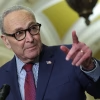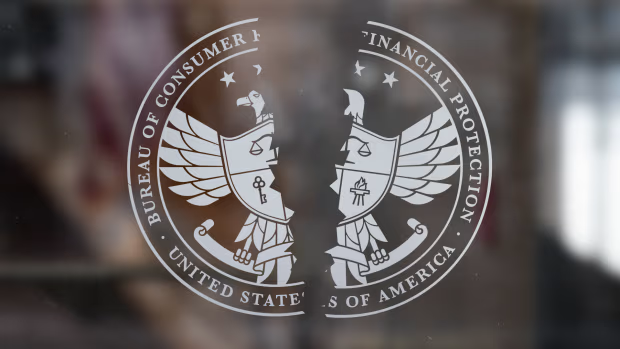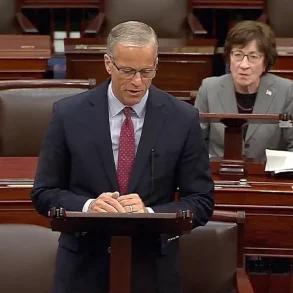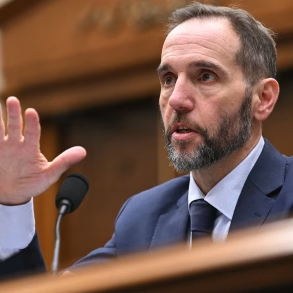n early 2025, the Consumer Financial Protection Bureau (CFPB) found itself at the center of a heated political storm. Created in 2010 after the 2008 financial crisis to shield Americans from shady financial practices, the agency is now fighting for its survival. President Donald Trump, backed by Republican lawmakers and billionaire Elon Musk’s Department of Government Efficiency, has set out to dismantle the CFPB, calling it a symbol of government overreach. Meanwhile, defenders like Senator Elizabeth Warren and federal workers rally to save it, arguing it’s a vital protector of everyday Americans. So, what’s really at stake here?
The CFPB was designed to be a watchdog, keeping banks, credit card companies, and lenders in check. It handles consumer complaints, investigates fraud, and sets rules to prevent predatory practices—like unfair overdraft fees or sky-high credit card penalties. For example, just before President Biden left office, the CFPB tried to cap checking account overdraft fees at $5, a move meant to ease the burden on low-income Americans. Supporters say this kind of work is why the agency matters. They point to cases like Eva Steege, an 83-year-old pastor who, before her death in March 2025, relied on the CFPB to secure student loan forgiveness and a $15,000 refund. Without the agency, her family might have been stuck with her debt.
But critics, including Trump and Republican leaders like Senators Tim Scott and John Boozman, see the CFPB as a bloated bureaucracy that meddles too much in people’s lives. They argue it’s run by unelected officials who answer to no one, funded by the Federal Reserve instead of Congress. This, they say, makes it a “rogue agency” that sidesteps the checks and balances of democracy. They also claim its rules hurt more than they help. Take the overdraft fee cap: critics argue it could backfire, pushing banks to stop offering overdraft services altogether or to cut off low-income customers to avoid risk. Instead of protecting consumers, they say, the CFPB might leave them with fewer options, forcing some to turn to risky alternatives like payday loans.
The push to gut the CFPB kicked into high gear in February 2025. Trump fired the agency’s director, Rohit Chopra, and installed a temporary replacement who halted operations, canceled $100 million in contracts, and fired 70 employees. Protesters, including CFPB workers and Congressional Democrats, gathered outside the agency’s Washington, DC headquarters on February 10, waving signs and chanting to save it. Senator Warren, who helped create the CFPB, called the moves an attack on working families. Meanwhile, Musk’s team arrived at the agency, signaling a swift “wind-down” as part of Trump’s broader plan to shrink government.
Republicans in Congress are also chipping away at the CFPB’s powers. On March 27, the Senate voted to repeal the overdraft fee cap using the Congressional Review Act, with the House expected to follow suit in early April. Leaders like House Financial Services Committee Chairman French Hill argue these rules stifle innovation and treat Americans like they can’t make their own choices. Some even cheer the agency’s potential demise, with Musk himself posting “CFPB RIP” on X, complete with a tombstone emoji.
Yet the CFPB isn’t going down without a fight. On March 28, federal Judge Amy Berman Jackson issued a preliminary injunction, blocking Trump’s administration from dismantling the agency entirely. She warned that without court action, the CFPB could vanish before its fate is legally decided, causing “irreparable harm.” A federal appeals court on April 11 allowed Trump to shrink the agency but ruled he can’t gut it so much that it can’t function. For now, the CFPB limps along, caught in a legal tug-of-war that could reach the Supreme Court.
So, who’s right? Is the CFPB a lifeline for consumers, or a government overstep that needs to be reined in? The answer depends on where you stand. Supporters argue it’s a necessary shield against financial giants, ensuring people like Eva Steege aren’t crushed by debt. Critics counter that it’s a nanny state gone wild, making choices for adults and hurting the very people it claims to help. As the courts and Congress wrestle with its future, one thing’s clear: the fight over the CFPB is about more than just one agency—it’s about how much power the government should have over our financial lives.








